Vision Zero
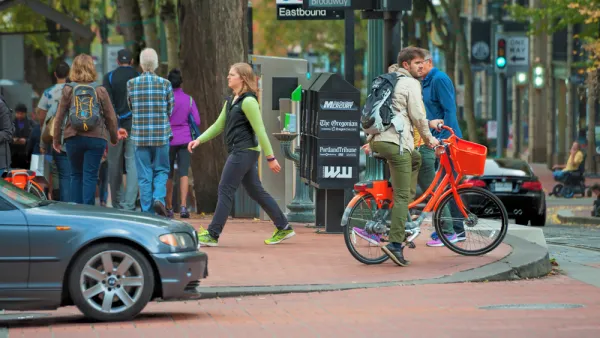
Traffic Deaths Reach Three-Decade High in Portland
In spite of the city's commitment to Vision Zero goals, more people died on Portland's streets than anytime in the last thirty years, with unhoused people most vulnerable to traffic violence.
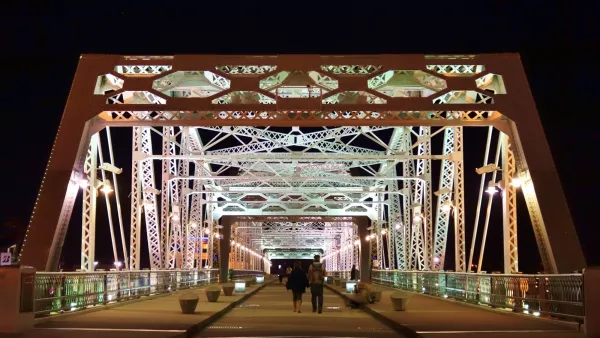
Nashville Releases 5-Year 'WalknBike' Plan
The plan lays out the city's plans for improving its bike infrastructure and sidewalk network.
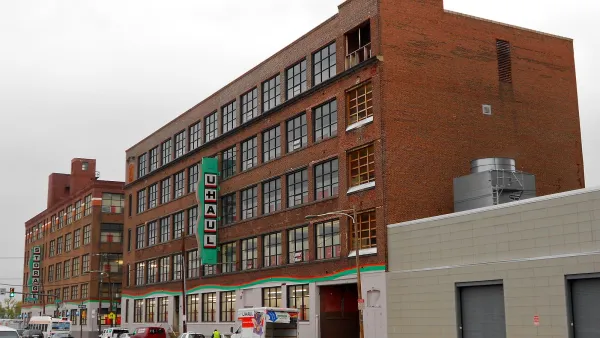
Why a Complete Streets Makeover Went Awry in Philadelphia
The city pulled the plug on a proposed street redesign after community groups criticized the public engagement process for not listening to all local voices.
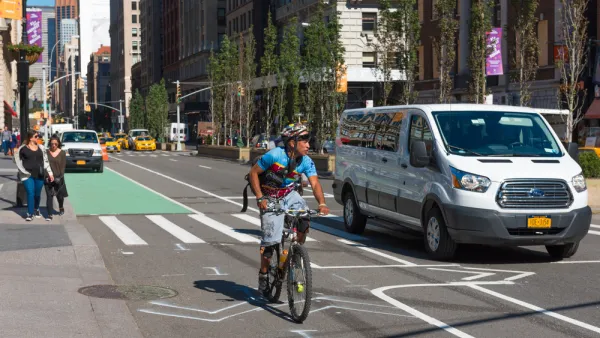
New York Legislature To Vote on Complete Streets Bills
A set of proposed laws would make streets safer for all road users in an effort to reduce traffic deaths.

Speed Cushion Pilot Project Drastically Reduces Vehicle Speeds in Cincinnati
With Vision Zero faltering around the country, maybe it's time to get back to the fundamentals of street design. An example from Cincinnati shows how street improvements can achieve significant improvements with relatively little expense.
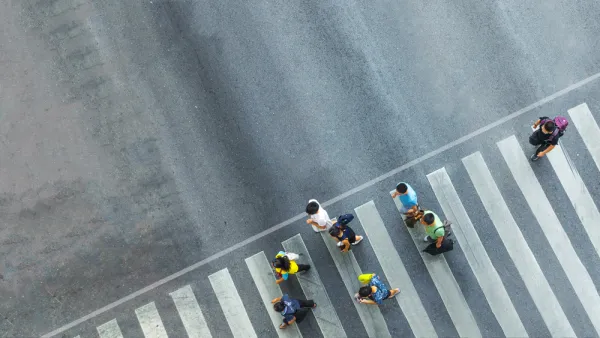
National Roadway Safety Program Centers Vision Zero at the Federal Level
A new federal program will direct resources to reducing traffic deaths, improving roadway safety, and encouraging a shift to sustainable transportation modes.

COVID Zero: The High Price of Containment
Vision Zero: a strategy to eliminate road crashes, particularly those with fatal outcomes. COVID Zero: a strategy to end coronavirus transmission. Only one has worked—but at a steep price.
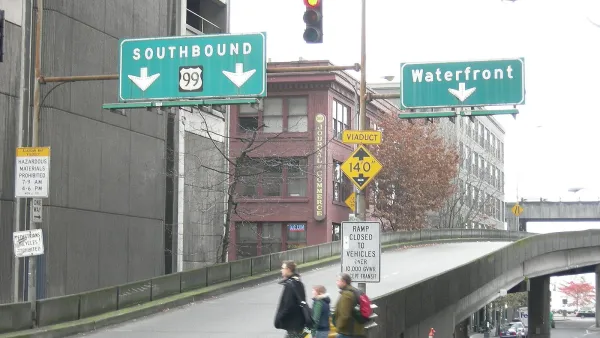
Seattle's Vision Zero Program Emphasizes Safe Systems Over Enforcement
Looking for traffic safety improvements while responding to 2020's Black Lives Matter protests, Seattle has spent much of the past two years implementing a Safe System approach to move closer to its Vision Zero goal to eliminate traffic fatalities.
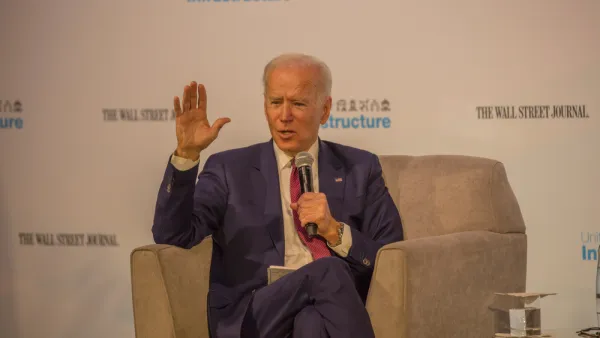
Year in Review: The Stories That Defined Urban Planning in 2021
Part two (of two) of Planetizen's review of 2021 collects the biggest stories and storylines of the year from the wide world of planning.

Vision Zero Projects Reduce Carnage in Select Corners of Austin
Vision Zero safety improvements at High Injury Roadways and implementation and Leading Pedestrian Intervals are reducing crashes in Austin. The city has a long way to go to achieve Vision Zero.
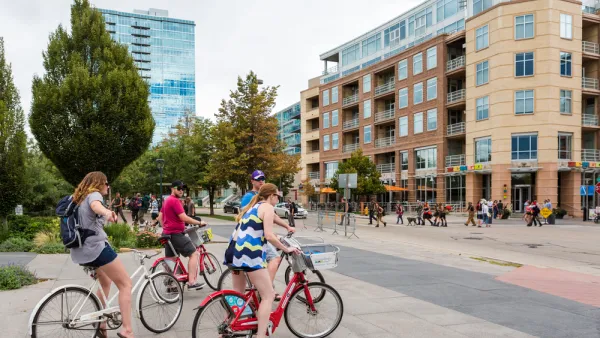
Study: More Bike Infrastructure Could Prevent 15,000 Deaths Annually
In addition to reducing air pollution and congestion, improving bike infrastructure could save thousands of lives each year, according to new research.
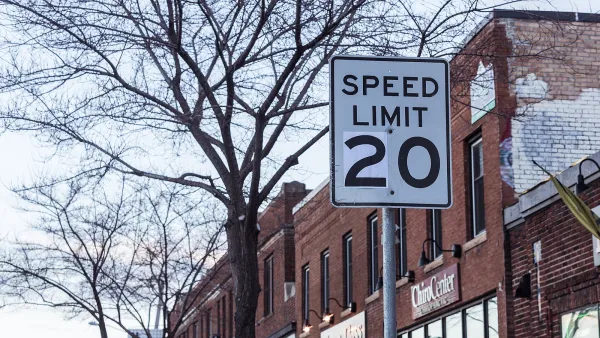
Latest to Say '20 Is Plenty': Norfolk, Virginia
Norfolk joins several other cities in smoothing the way for 20 MPH speed limits on neighborhood streets to promote its Vision Zero goals.
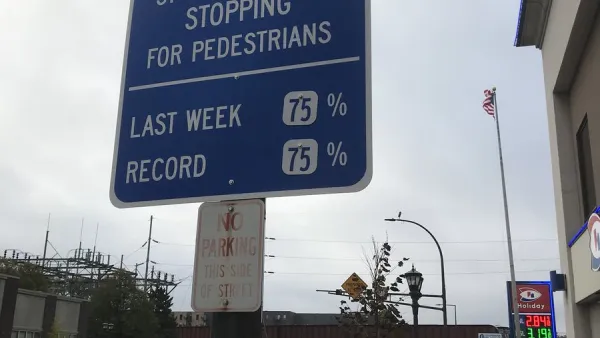
Data-Driven Analytics at the Heart of Vision Zero Goals
Data is the key to crafting Vision Zero plans with community buy-in.
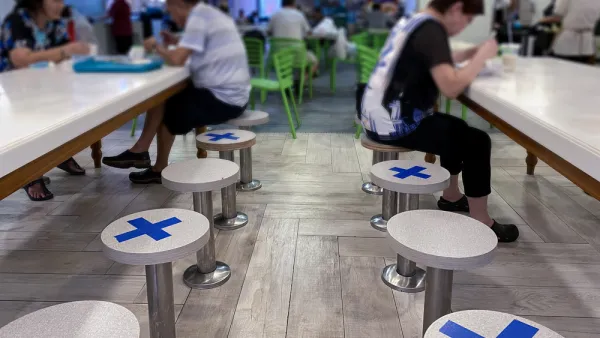
Pandemic Geography: What's Going on in Singapore?
With 82% of its population fully vaccinated, mostly with mRNA vaccines, COVID case incidence on Nov. 1 is the same as Wyoming, where 44% of the population is fully vaccinated. Hospitals are feeling the strain, and deaths are at their highest level.

Bus Lane Plans Continue Retreat in New York City—This Time it's Fifth Avenue
The de Blasio administration caved to the interests of a Manhattan real estate developer and shelved a plan to prioritize bus transit over private automobiles on one of the most famous corridors in the world.
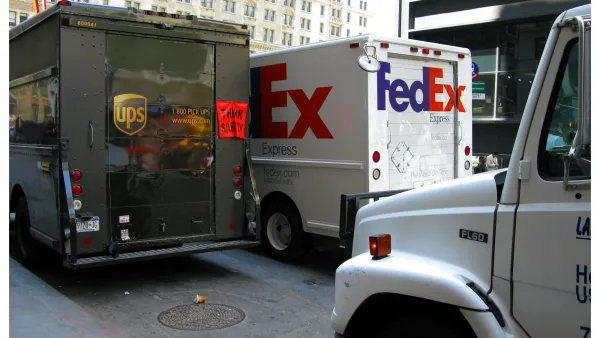
How Street Configuration Impacts Equity
With urban pollution and traffic violence disproportionately affecting communities of color, better management of public space and streets could improve equity in cities.
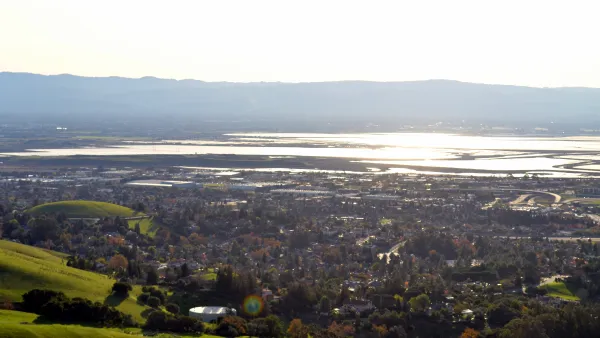
Vision Zero Success Story: Fremont, California
While traffic fatalities continue to rise nationwide, Fremont has drastically reduced its crash rates in the five years since it launched its Vision Zero project.
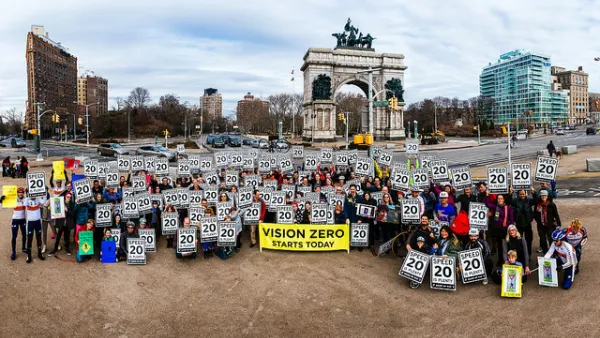
Zero Vision Zero: Streets Deadlier Now Than When De Blasio Started
Mayor Bill de Blasio in 2014 set a goal to eliminate traffic fatalities from New York City. Now, with de Blasio preparing to leave office, more people are dying on the city's streets than when he made that announcement.
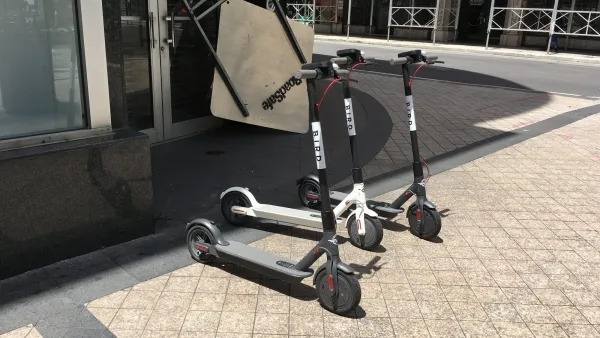
Bird Scooters Now Automatically Slow in High-Activity Areas
Years after cities first started trying to regulate electric scooters with geofences and designated parking areas, Bird will begin automatically lowering scooter speeds in pedestrian-dense areas like school zones and hospitals.
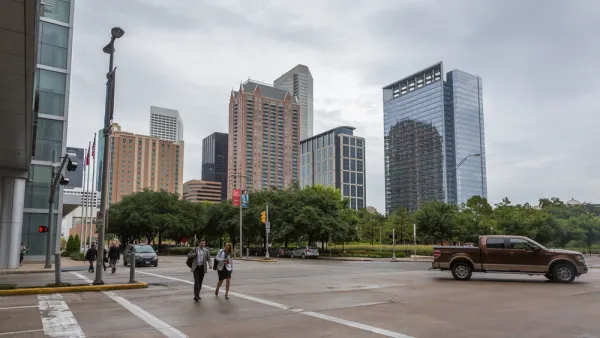
Houston's Pedestrian Death Problem, Explained
The city's roadways were built to prioritize fast-moving traffic, not safety. With a new Vision Zero plan, that could change.
Pagination
Urban Design for Planners 1: Software Tools
This six-course series explores essential urban design concepts using open source software and equips planners with the tools they need to participate fully in the urban design process.
Planning for Universal Design
Learn the tools for implementing Universal Design in planning regulations.
EMC Planning Group, Inc.
Planetizen
Planetizen
Mpact (formerly Rail~Volution)
Great Falls Development Authority, Inc.
HUDs Office of Policy Development and Research
NYU Wagner Graduate School of Public Service


































